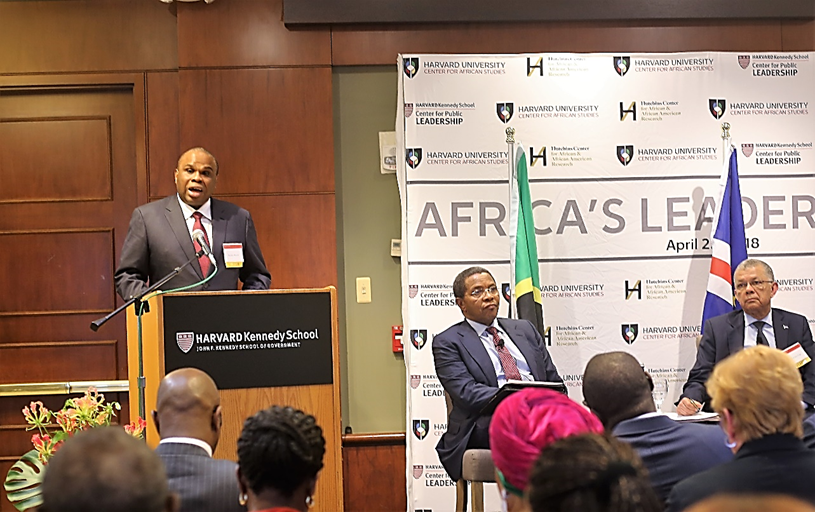Industrialisation and African Diaspora investment are key to raising Africa’s capital stock which will trigger faster economic growth and development in the continent, Dr. Benedict Oramah, President of the African Export-Import Bank (Afreximbank), has said.
Delivering an address at the “Africa Leaders Speak” Forum at Harvard University’s Kennedy School in Cambridge, United States, on 26 April, President Oramah pointed to academic research and empirical evidence showing the link between the rate of capital accumulation and economic performance and indicating that developed economies were those with the highest capital stock.
President Oramah told the forum, which featured former African Heads of States, that Africa’s low levels of capital accumulation was largely result of African economies not capturing a good share of the value chain of agricultural commodities and natural resources.
He noted, for instance, that in the global cocoa sector, which generated $120 billion annually, African farmers, who delivered 77 per cent of the cocoa supply, retained only 3 per cent to 8 per cent of the value while a few foreign traders and chocolate manufacturers earned between 32 per cent and 50 per cent of the global cocoa value chain.
Similarly, in the oil sector, Africa received only 3 per cent of the $3 trillion from the petroleum products market although it accounted for 10 per cent of crude oil reserves, and in other sectors like the gold, Africa accounted for 50 per cent of the world’s deposits but received only 4 per cent of the over $300 billion global gold earnings, Dr. Oramah added.
He announced that Afreximbank had the Afreximbank Market Asymmetry index to measure the distribution of revenues to various actors in the commodity value chain.
Continuing, the President said that limited access to finance was another reason for Africa’s low capital accumulation, noting that foreign direct investments were very low and concentrated on a few sectors like the extractives industries. Other factors included insufficient levels of trade and project finance flows, with the trade finance gap and annual infrastructure finance gap standing at $120 billion and $93 billion respectively, and shallow domestic financial markets which were as a result of low savings and poorly capitalised banks.
“For Africa to break from the vicious cycle of low income, low savings and low investment, it must move away from commodity dependence into production of higher value-added goods, thereby accumulating capital along the value chain and increasing trade amongst African economies in order to gain comparative advantage and retain more value within the continent,” said the President.
“The African Diaspora, with GDP estimated at over $500 billion, must be seen as a market for exports and for sourcing human and financial capital,” he said.
The President reaffirmed Afreximbank’s commitment to fostering intra-African trade, promoting the industrialisation of the continent and attracting more resources to complement existing trade finance flows into Africa.
Other speakers at the Forum included former Nigerian President Olusegun Obasanjo, who delivered a presentation on “Agriculture and Agribusiness in Africa’s Development and the link between Security and Continental Integration”; Former Tanzanian President Jakaya Kikwete, who spoke on “the Role of Education and Technology”; and Carlos Alberto Whanon de Carvalho Veiga, former Prime Minister of Cape Verde, who discussed “the Role of the Private Sector in Trade and Industry”.
The participants at the event, organised by the Centre for African Studies, Harvard University, included students and faculty from the university, members of the diplomatic corps, business leaders and the media.






